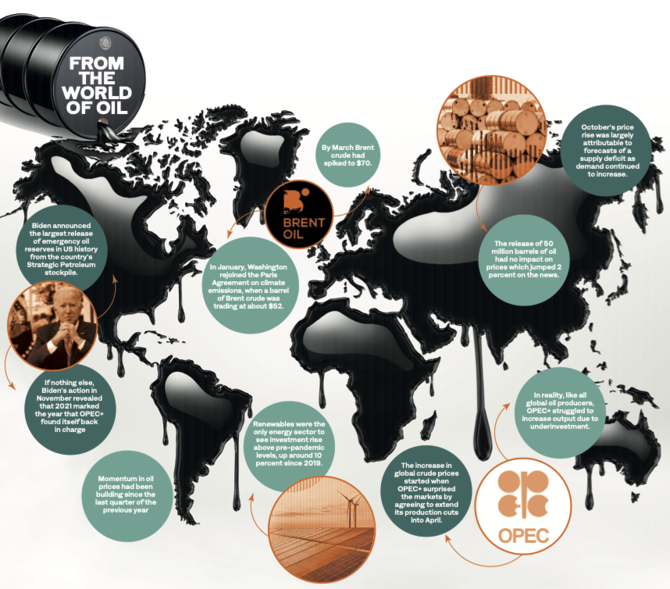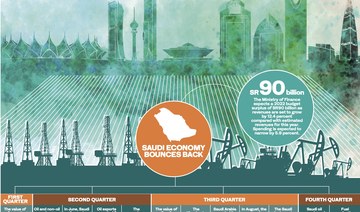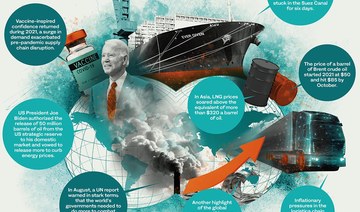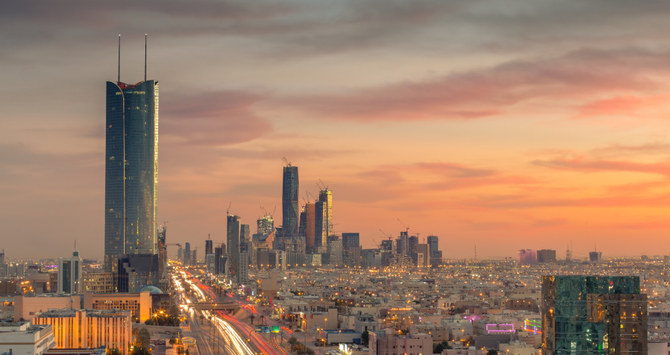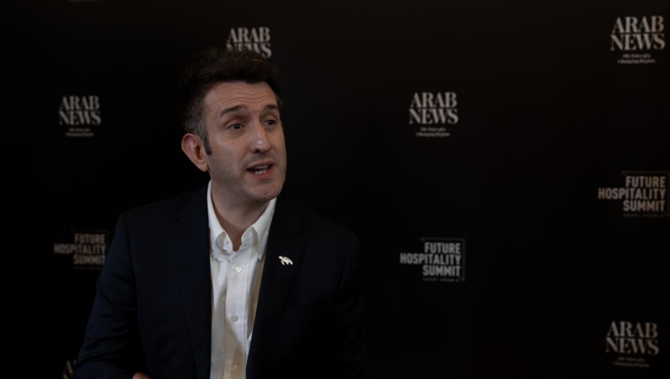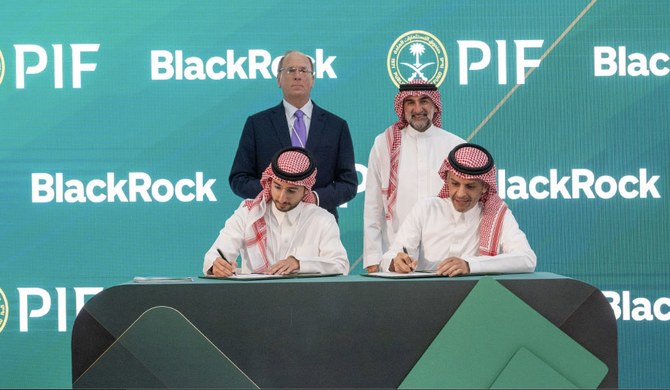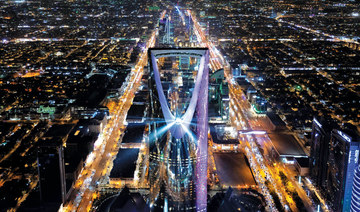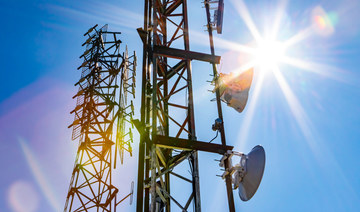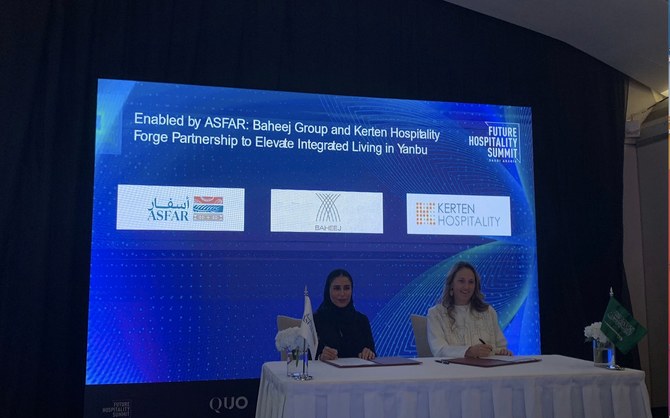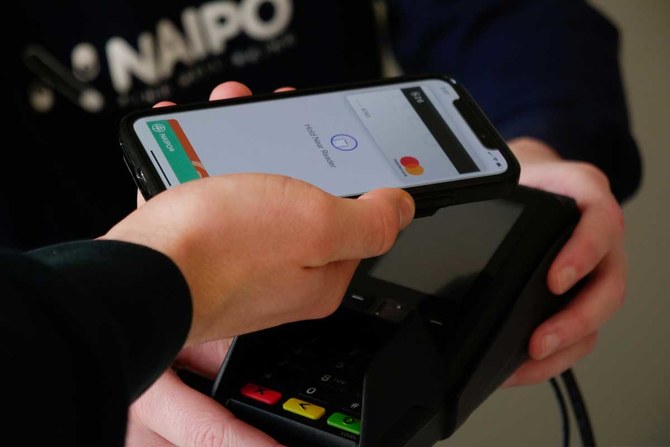LONDON: Greta Thunberg’s excoriating dismissal of world leaders over their promises to address global warming as “blah, blah, blah” wasn’t as it turned out, too wide of the mark in 2021.
Despite earnest commitments, from Washington to Beijing, to reduce fossil fuel consumption and cut planet-heating emissions, demand for crude oil soared in 2021 as the global recovery from the COVID-19 pandemic took off.
Don’t tell Greta, but oil prices are up around 50 percent this year, courtesy of increased demand and tight supply.
In January, the month when Joe Biden was officially sworn in as president of the US and Washington rejoined the Paris Agreement on climate emissions, a barrel of Brent crude was trading at about $52.
By March it had spiked to $70.
Momentum in oil prices had been building since the last quarter of the previous year, but the immediate catalyst for March’s spike, and indeed this year’s increase in global crude prices, started with OPEC and its allies, who surprised the markets by agreeing to extend its production cuts into April.
Amid a nascent economic recovery, low inventories, and a lack of spare capacity, oil supply suddenly looked a lot tighter.
The sharp increase in oil demand as COVID-19 restrictions began to ease in the middle of the year took suppliers by surprise and led to tensions between the US and OPEC+.
As demand overwhelmed supply, domestic gas prices soared in the US President Biden called on OPEC+ to open up the pumps and boost production, a plea that fell on deaf ears as the group and its OPEC partners continued to opt for restraint.
In reality, like all global oil producers, OPEC+ struggled to increase output due to underinvestment. While oil investment increased about 10 per cent this year, spending has remained well below pre-pandemic levels as pressure remains on private companies to keep oil and gas portfolios in check.
FASTFACT
10%
In reality, like all global oil producers, OPEC+ struggled to increase output due to underinvestment. While oil investment increased about 10 per cent this year, spending has remained well below pre-pandemic levels as pressure remains on private companies to keep oil and gas portfolios in check.
In June, more than 400 blue chip investors controlling $41 trillion in assets called for governments around the world to end support for fossil fuels. Small wonder an International Energy Agency report released this year noted the “balance of investment in fossil fuels is shifting toward state-owned companies.”
Even the US shale industry, which a few years ago was seen as the swing producer for global oil, has reined in spending. As Saudi Arabia’s energy minister, Prince Abdulaziz bin Salman, succinctly put it in March: “Drill, baby, drill”, the mantra of the US fracking industry, “is gone forever.”
The International Energy Agency hardly helped investment when in May it demanded an immediate end to fossil fuel extraction, a demand Prince Abdulaziz bin Salman again succinctly described as a “la-la-land” scenario.
Against the backdrop of a hostile environment for fossil fuels, investment in renewables continued to grow this year. Indeed in 2021, renewables were the only energy sector to see investment rise above pre-pandemic levels, up around 10 percent since 2019.
But of course, the problem with calls for disinvestment in the oil industry is that attacking supply does absolutely nothing to curb consumer demand — the real driver of global warming. Thus, as the world tuned into the delayed Tokyo Olympic Games, which began in July, black gold was sprinting towards $75.
By October, just weeks before world leaders gathered to profess their commitment to tackle climate change at the UN COP26 Climate Conference in Glasgow, Brent crude hit a seven-year high at around $86 per barrel.
October’s price rise was largely attributable to forecasts of a supply deficit as demand continued to increase. At the same time, the sharp rise in global gas prices, and even coal prices, since August had forced many power generators to turn away from natural gas towards fuel oil and diesel.
Wholesale European gas prices have increased more than 800 percent over 2021 due to a combination of global demand and competition between Europe and Asia for supplies.
European leaders also accused Russian President Vladimir Putin, whose country supplies around a third of Europe’s gas, of withholding supply to force the EU to approve its controversial pipeline Nord Stream 2. This pipeline is planned to supply oil to Europe, but bypasses Ukraine, which has longstanding territorial disputes with Russia.
October’s oil spike was again helped by OPEC+, which earlier in the month insisted they would stick to their July pact to gradually increase supply, ignoring fresh calls from President Biden to open the taps as US gasoline prices hit a seven-year high.
In response, and just days after demanding urgent action on climate change at COP26 in November, Biden announced the largest release of emergency oil reserves in US history from the country’s Strategic Petroleum stockpile. The release of 50 million barrels of oil had no impact on prices which jumped 2 percent on the news.
If nothing else, Biden’s action in November revealed that 2021 marked the year that OPEC and its allies found itself back in charge of setting the global price for crude oil.
Despite sliding back toward the end of the year, the decline was largely driven by fears that travel restrictions imposed by governments due to the omicron variant will hit the aviation industry, Brent crude is still trading at near $80 a barrel as December, and 2021, draws to a close.
Looking forward to 2022, a report by JP Morgan in December predicted that oil will hit $125 a barrel next year and, fasten your seatbelts, $150 in 2023, again due to capacity-led shortfalls in OPEC+ production.
“We think OPEC+ will slow committed increases in early 2022, and believe the group is unlikely to increase supply unless oil prices are well underpinned,” the bank said.
A slightly more conservative estimate by Goldman Sachs also predicts high oil next year and in 2023, with crude potentially rising to between $100 and $110 per barrel.
The IEA now predicts crude consumption will reach 99.53 million barrels per day in 2022, up from 96.2 million this year, and more or less back to pre-pandemic levels.
Consequently, carbon emissions are on track to rise by 16 percent by 2030 according to the UN, rather than fall by half, the reduction required to keep global warming below the Paris Agreement limit of 1.5C.
Happy New Year Greta — and all Arab News readers.



